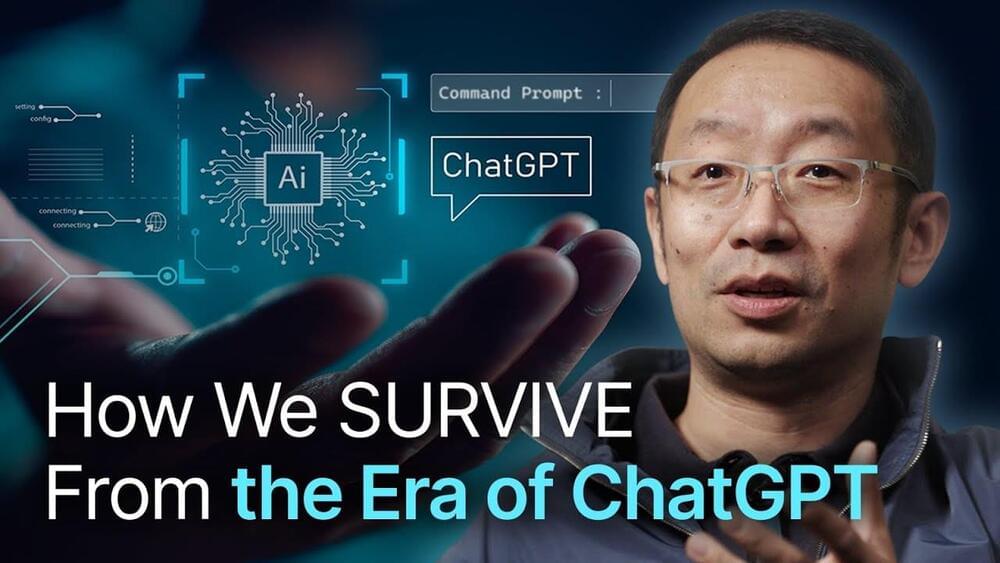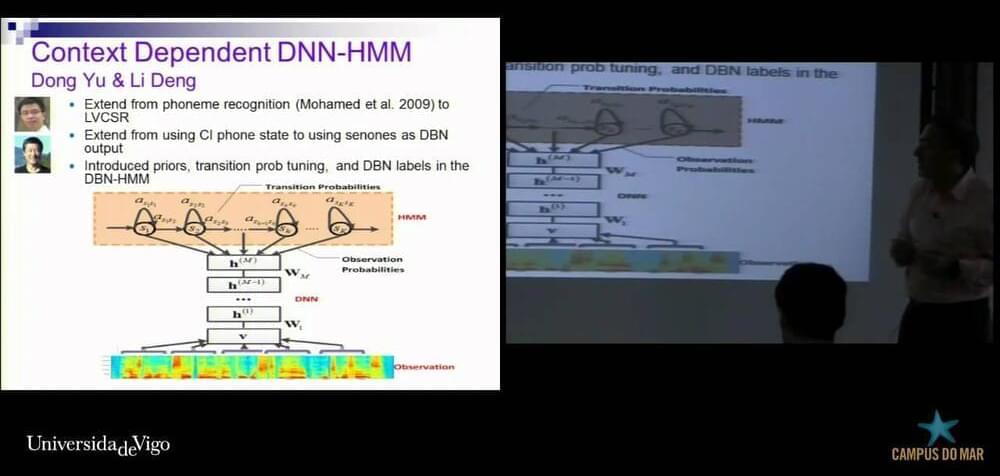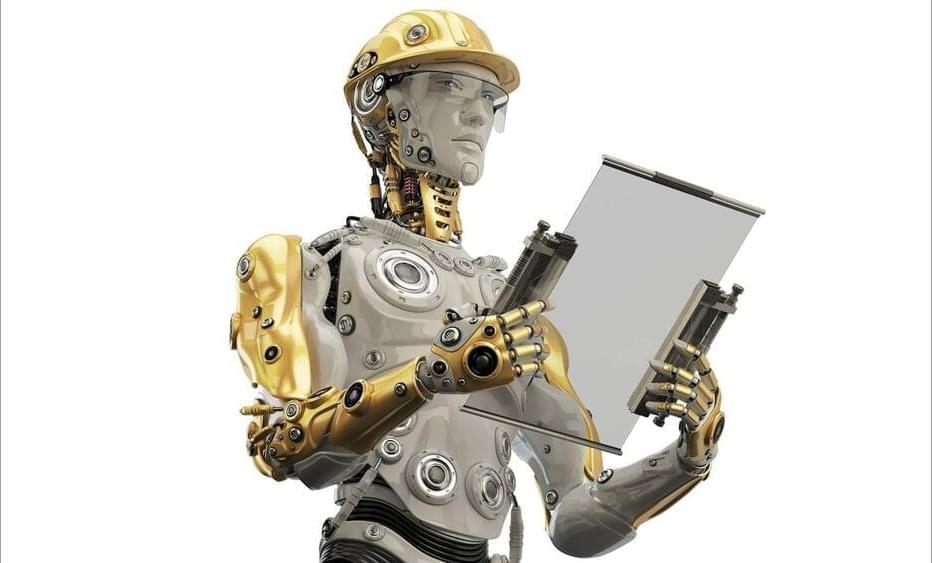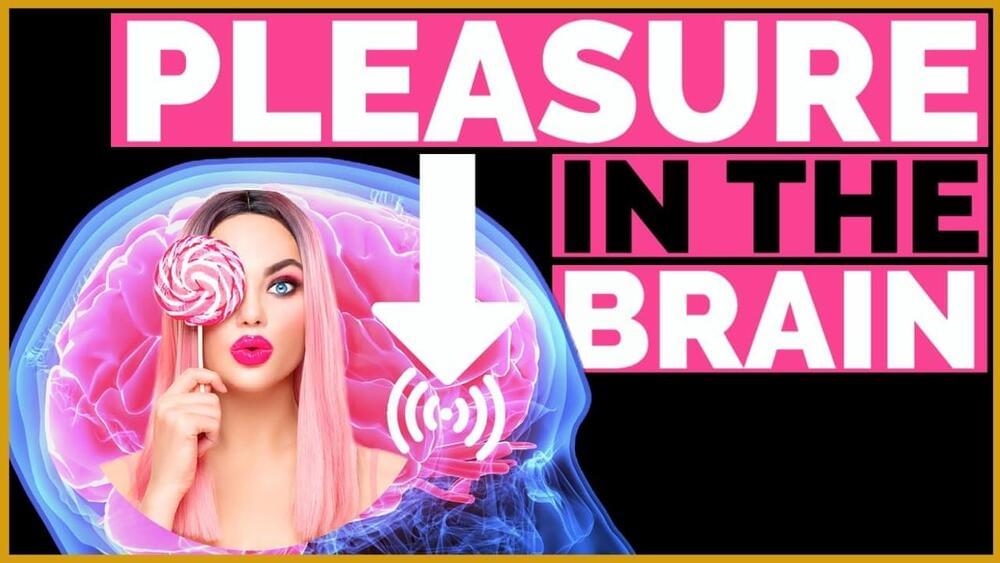Examining Elon Musk’s Criticism of ChatGPT. “Twitter’s CEO Elon Musk Is Reportedly Critiquing ChatGPT for Being ‘Woke’. Is He right?” is published by Liquid Ocelot in InkWater Atlas.
Premium Robots: https://taimine.com/
Deep Learning AI Specialization: https://imp.i384100.net/GET-STARTED
A new multimodal artificial intelligence model from Microsoft called Kosmos-1 is able to process both text and visual data to the point of passing a visual IQ test with 26 percent accuracy, and researchers say this is a step towards AGI. Stable Diffusion AI can now read brain waves to reconstruct images that people are thinking about. Stanford has created a world record brain computer interface device with the help of AI to allow patients to type 62 words per minute with their thoughts.
AI News Timestamps:
0:00 Microsoft Kosmos-1 AI & AGI
3:34 AI Neuroscience Tech Reads Brain Waves.
5:43 AI & BCI Breaks Record.
#technology #tech #ai
Recycling spent lithium-ion batteries plays a significant role in alleviating the shorting of raw materials and environmental problems. However, recycled materials are deemed inferior to commercial materials, preventing the industry from adopting recycled materials in new batteries.
Now, researchers at Worcester Polytechnic Institute (WPI) in Massachusetts have demonstrated that the recycled materials from used lithium-ion batteries can outperform new commercial materials, making the recycled materials a potentially green and profitable resource for battery producers. Led by Yan Wang, professor in the Department of Mechanical and Materials Engineering, the team of researchers used physical tests, imaging, and computer simulations to compare new cathode materials recovered from old electric vehicle batteries through a recycling process, which is being commercialized by Battery Resourcers Inc. of Worcester.
The technology involved shredding batteries and removing the steel cases, aluminum and copper wires, plastics, and pouch materials for recycling. Researchers then dissolved the metals from those battery bits in an acidic solution. They by tweaking the solution’s pH, the team removed impurities such as iron and copper and recovered over 90% of three key metals – nickel, manganese, and cobalt. The recovered metals formed the basis for the team’s cathode material.
Forget about He Jiankui, the Chinese scientist who created gene-edited babies. Instead, when you think about gene editing you should think of Victoria Gray, the African-American woman who says she’s been cured of her sickle-cell disease symptoms.
This week in London, scientists are gathering for the Third International Summit on Human Genome Editing. It’s gene editing’s big event, where researchers get to awe the audience with their new ability to modify DNA—and ethicists get to worry about what it all means.
The field equations of Einstein’s General Relativity theory say that faster-than-light (FTL) travel is possible, so a handful of researchers are working to see whether a Star Trek-style warp drive, or perhaps a kind of artificial wormhole, could be created through our technology.
But even if shown feasible tomorrow, it’s possible that designs for an FTL system could be as far ahead of a functional starship as Leonardo da Vinci’s 16th century drawings of flying machines were ahead of the Wright Flyer of 1903. But this need not be a showstopper against human interstellar flight in the next century or two. Short of FTL travel, there are technologies in the works that could enable human expeditions to planets orbiting some of the nearest stars.
Certainly, feasibility of such missions will depend on geopolitical-economic factors. But it also will depend on the distance to nearest Earth-like exoplanet. Located roughly 4.37 light years away, Alpha Centauri is the Sun’s closest neighbor; thus science fiction, including Star Trek, has envisioned it as humanity’s first interstellar destination.
Dr. Li Jiang is a director of Stanford AIRE program. Many of you think ChatGPT started the era of AI. But, Dr. Jiang says it started already. AI seems much better than we do. It seems it can solve many problems. Then, what can we do? How can we survive from AI? How should we do? Dr. Jiang suggest this method for us who are facing the era of AI.
Stanford DLI Challenge is a unique program that empowers individuals to create cutting-edge digital learning solutions. With guidance from experienced educators and designers, gain hands-on experience with the latest technologies and teaching methods. Sign up now to join a community of educators and designers dedicated to transforming education for the better: https://acceleratelearning.stanford.edu/get-involved/digital…challenge/
00:00 Intro.
00:47 Know AI Thinking.
01:32 3 Things of AI Thinking.
03:45 How Do We Invent New Things?
04:29 5 Steps of Design Thinking.
07:05 I Let My Students Use ChatGPT
EO stands for Entrepreneurship & Opportunities.
We’re looking for more inspiring stories of entrepreneurs all over the world, so don’t hesitate to contact us! smile
Subscribe EO Channel 🌏
👉🏻👉🏻 https://bit.ly/3S0Pacc.
Business Inquiry 💼
👉🏻👉🏻 [email protected].
EO Twitter 🖌
👉🏻👉🏻 https://twitter.com/EO__Global.
Subtitles for this video were created using XL8.ai machine translation.
AERFAI Summer School on Pattern Recognition in Multimodal Human Interaction — Deep Neural Networks for Speech and Image Processing.
This is the sixth edition in a series of AERFAI Summer Schools devoted to a wide range of topics in the fields of Pattern Recognition and Machine Learning. The focus of this year’s Summer School is to provide the students the most relevant techniques to analyze and understand the information conveyed in human audiovisual communication.
Vídeo disponible en: http://tv.campusdomar.es/en/video/787.html
With Folded Hands
Posted in robotics/AI
Story written by Jack Williamson 1947
Radio Broadcast April 15, 1950
Pictures of robots.
Don’t fret the AI job ‘apocalypse’. While we can expect disruption across different industries, this will come with opportunities.
Brave new world let’s create happiness for everyone by putting microelectrode arrays in our brains but be careful not to create a situation like death by ecstacy by Larry Niven.
In the brain, pleasure is generated by a handful of brain regions called, “hedonic hotspots.” If you were to stimulate these regions directly, you would likely feel pleasurable sensations. However, not all of the hedonic hotspots are the same–some generate the raw sensations of pleasure whereas others are responsible for consciously interpreting and elaborating on the raw pleasure produced by the other hotspots. In this video, in addition to exploring the neuroscience of pleasure, we’ll see how understanding pleasure, happiness, meaning, and purpose can help us live better lives.
Follow @senseofmindshow for more neuroscience explainers.
Follow on Social Media: https://linktr.ee/senseofmind.
-
Chapters.
00:00 Hedonic hotspots: the brain’s pleasure generators.
00:56 The evolution of pleasure.
01:46 How the brain generates pleasure.
03:07 The subcortical (‘core’) pleasure network.
04:08 The cortical (‘higher’) pleasure network.
05:09 The orbitofrontal cortex’ role and the abstract to concrete pleasure gradient.
08:13 How to be happier by understanding the neuroscience of pleasure.
11:40 Summary.
-









